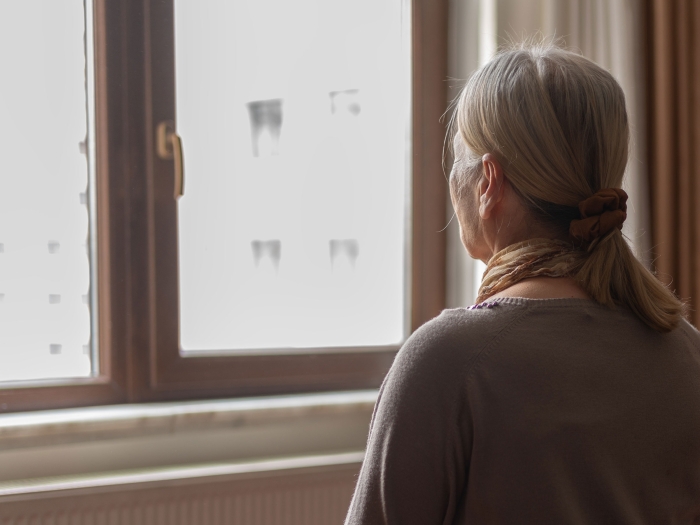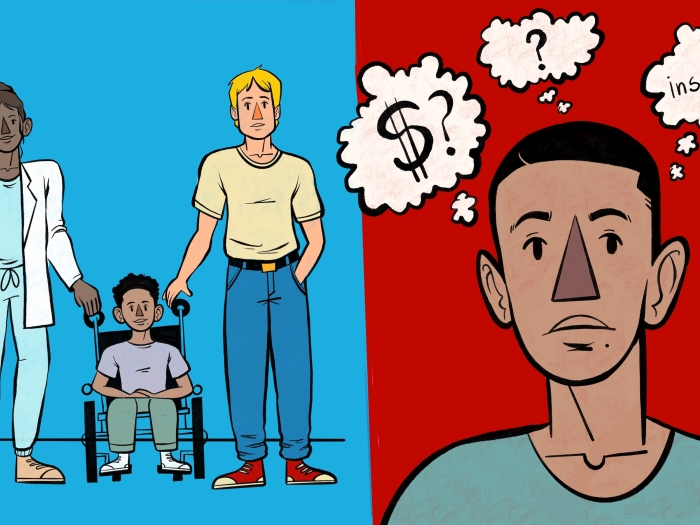People who lived in under-resourced neighborhoods and underwent operations at lower-quality hospitals were more likely to die within 30 days.
10:50 AM
Author |

Living in an under-resourced neighborhood may affect a person’s recovery from surgery, even if their operation takes place at a high-quality hospital, according to a large study of Medicare patients.
A University of Michigan-led research team analyzed whether the death rate in the 30 days after five common operations was tied to hospital quality, as calculated by the Centers for Medicare & Medicaid Services, and/or zip code for close to 2 million patients covered by Medicare.
They documented widespread variation across the United States for both measures, including that where patients lived did not predict whether they underwent their operations at high- or low-quality hospitals.
However, living in a neighborhood with high poverty levels, low education rates and worse quality housing increased the likelihood that a patient died after surgery, whether their procedure took place at a high-quality hospital or not. Similarly, undergoing surgery at a lower-quality hospital put patients at similar risk of dying after their operations, even if they lived in neighborhoods with higher incomes and education levels.
These findings support community benefit and other policies designed to incentivize investment in and examination of the roles hospitals play in advancing structural equity in the communities they serve.” Adrian Diaz, M.D., M.P.H.
“In other words, patients from the most deprived neighborhoods going to the highest-rated hospitals have a similar risk of death as those in the least deprived neighborhoods going to the lowest-quality hospitals,” said Andrew M. Ibrahim, M.D., MSc., co-director of the Center for Healthcare Outcomes & Policy at Michigan Medicine, a member of Precision Health, a surgeon at University of Michigan Health and the senior author of the study.
Patients who both lived in under-resourced neighborhoods and underwent surgeries at low-quality hospitals had the highest death rate (all death rates were in the single digits.)
“These findings support community benefit and other policies designed to incentivize investment in and examination of the roles hospitals play in advancing structural equity in the communities they serve,” said Adrian Diaz, M.D., M.P.H., a research fellow at Michigan Medicine, a general surgery resident at Ohio State University and the first author of the study.
Health care systems are increasingly developing pilot programs to identify patients who live in neighborhoods at increased risk of poor surgical outcomes and creating programs to try to improve those patients’ health before surgery. For example, Michigan Medicine leads an initiative called Michigan Social Health Interventions to Eliminate Disparities, also known as MSHIELD, funded by Blue Cross Blue Shield of Michigan that partners with health and human services organizations across the state of Michigan to do this type of work.
Additional authors include Stacy Tessler Lindau of the University of Chicago; Samilia Obeng-Gyasi of Ohio State University; Justin Dimick and John Scott of Michigan Medicine
Diaz receives funding from the University of Michigan Institute for Healthcare Policy and Innovation’s Clinician Scholars Program. Dimick and Ibrahim receive grant funding from the National Institutes of Health. Lindau’s effort was supported in part by the NIH grant and the National Institute on Aging.
Paper cited: “Association of Hospital Quality and Neighborhood Deprivation With Mortality After Inpatient Surgery Among Medicare Beneficiaries,” JAMA Network Open. DOI: 10.1001/jamanetworkopen.2022.53620

Explore a variety of health care news & stories by visiting the Health Lab home page for more articles.

Department of Communication at Michigan Medicine
Want top health & research news weekly? Sign up for Health Lab’s newsletters today!





